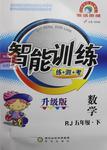题目内容
【题目】"A photograph that one has taken of oneself, typically with a smart phone or webcam and uploaded to a social media website" is the definition of "selfie" in the Oxford English Dictionary. In fact, it wasn't even in the dictionary until August of last year. It earned its place there because people are now so obsessed with (对……痴迷) selfies ─ we take them when we try on a new hat, play with our pets or when we meet a friend whom we haven't seen in a while.
But is there any scientific explanation for this obsession? Well, you should probably ask James Kilner, a neuroscientist(神经系统科学家) at University College London.
Through our lifetime we become experts at recognizing and interpreting other people's faces and facial expressions. In contrast, according to Kilner, we have a very poor understanding of our own faces since we have little experience of looking at them ─ we just feel them most of the time.
This has been proved in previous studies, according to the BBC.
Kilner found that most people chose the more attractive picture. This suggests that we tend to think of ourselves as better-looking than we actually are. To further test how we actually perceive our own faces, Kilner carried out another study. He showed people different versions of their own portrait ─ the original, one that had been edited to look less attractive and one that was made more attractive ─ and asked them to pick the version which they thought looked most like them. They chose the more attractive version.
But what does it say about settles? Well, isn't that obvious? Selfies give us the power to create a photograph ─ by taking it from various angles, with different poses, using filters (滤色镜) and so on ─ that better matches our expectations with our actual faces.
"You suddenly have control in a way that you don't have in non-virtual(非虚拟的) interactions," Kilner told the Canada-based CTV News. Selfies allow you "to keep taking pictures until you manage to take one you're happy with" , he explained.
【1】What is the passage mainly about?
A. The definition and fun of taking selfies.
B. A study of why people love taking selfies.
C. How taking selfies influences people's daily lives.
D. How to interpret people's facial expressions in their selfies.
【2】The underlined word "perceive" in Paragraph 5 can be replaced by "______".
A. interpret B. beautify C. choose D. explain
【3】What did Kilner discover from his researches?
A. People interpret others' facial expressions worse than their own.
B. People tend to spend more time looking at their faces than at others'.
C. People tend to believe they look more attractive than they actually are.
D. People who like taking selfies know more about their facial expressions.
【4】According to Kilner, people like taking selfies probably because they think ______.
A. it is a good chance to learn more about their actual faces
B. it is a way to respond to others' facial expressions correctly
C. it enables them to interact with their friends in social media
D. it allows them to satisfy their expectations with their appearances
【答案】
【1】B
【2】A
【3】C
【4】D
【解析】
试题分析:本文主要是对人们喜欢美化自己这一现象所进行研究的结果说明。
【1】主旨大意题。文章第一段提出来人们对自己痴迷的现象,第二段讲述的是要想知道为什么人们会痴迷自己就要向Kilner寻求答案,接下来的几段就是Kilner对于此事的研究调查,所以本文主旨就是一项关于为什么人们会对自己痴迷的研究。故选B
【2】词义推测题。A.理解,领会,把...理解为,把...看作;B.美化;C.选择;D.解释;This suggests that we tend to think of ourselves as better-looking than we actually are. To further test how we actually perceive our own faces,这句话应该理解为这个研究表明我们都倾向于美化自己,,为了进一步测试我们是怎么看待我们的脸。美化自己是行为的结果,而进一步检测就是为了检测我们到底是如何理解自己的真实面目的以及美化自己的结果的正确性。故选A
【3】细节理解题。根据倒数第三段Kilner found that most people chose the more attractive picture. ...we tend to think of ourselves as better-looking than we actually are可知人们倾向于自己认为比实际上的自己更好看。故选C
【4】细节理解题。根据倒数第二段Selfies give us the power to create a photograph ... that better matches our expectations with our actual faces.可知自拍照可以给我们权利去设计一张更符合我们期待的照片。故选D

 互动课堂系列答案
互动课堂系列答案 激活思维智能训练课时导学练系列答案
激活思维智能训练课时导学练系列答案【题目】“双十一”现在已经成为购物的节日,在这天,人们纷纷在网上购物,寻找自己喜爱的商品。以下是关于“双十一”来源和发展,请就此写一篇短文。
【写作内容】
起源 | 起源于1990年代南京的部分大学。 |
日期 | 每年的11月11日,所以在中国又被称为“光棍节” |
庆祝方式 | 年轻人举行各种聚会,并寻找自己心爱的人 |
发展 | 2011年起,“双十一”开始成为电子商务的标志。在那天,人们可以用很便宜的价格在网上购买喜欢的产品 |
存在的问题 | 人们花钱买很多自己并不需要的商品,或者买到价高质次的商品。投诉增多,增加烦恼 |
你的建议 | 双十一购物给消费者带来便利,但是购买时应该理性,要选择有信誉的商店并购买需要的商品, 以防被骗 |
参考词汇: 光棍节:Singles Day 电子商务:E-commerce
【写作要求】
1. 只能使用5个句子表达全部内容。
2. 文中不能出现真实姓名和学校名称。
______________________________________________________________________________
______________________________________________________________________________
______________________________________________________________________________
______________________________________________________________________________
______________________________________________________________________________
______________________________________________________________________________